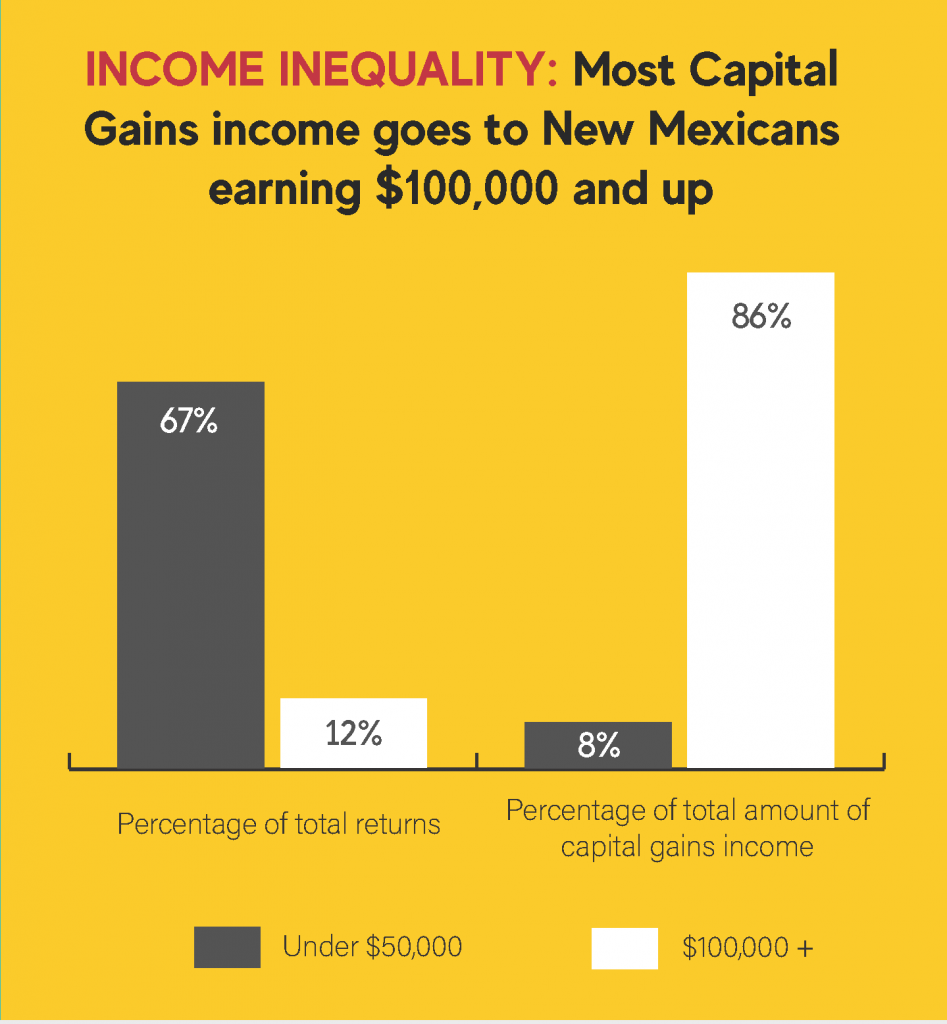Download this fact sheet (Nov. 2018; 2 pages; pdf)
Tax cuts for the wealthy limit New Mexico’s ability to plan for its future needs
Capital gains is income realized when something of value – stocks, bonds, real estate, etc. – is sold at a profit.
The Problem
- In 2003, the New Mexico Legislature gave a big tax break to those receiving capital gains income. This tax cut allowed people to deduct half of their capital gains income from their state taxes.
- Unfortunately, this deduction overwhelming goes to the highest-income earners – the people who are already paying the smallest share of their income in state and local taxes.
- It also means that is this unearned income is taxed at a lower rate than money earned from wages.
- This deduction costs the state between $20 million and $55 million every year – money that could go to schools, health care, and public safety instead.
- There is no evidence that capital gains deductions promote economic growth or foster investment. It is an ineffective tax give-away, and should be repealed.
Why Now?

- As a state that consistently has one of the highest rates of poverty, New Mexico should structure its tax code to help hard-working families, not to favor those who need the least help.
- New Mexico is too reliant on revenue from the oil and gas industry – this keeps us in a boom-or-bust cycle. It’s impossible to plan for future needs when our revenue outlook is so uncertain.
- Repealing the capital gains tax deduction will allow for a fairer tax system while generating sustainable revenue for the state.
- This revenue can more effectively be invested in proven job creators such as a cradle-to-career education system that produces a highly qualified workforce.
Who gets this Tax Break?
- 86% of the value of the capital gains deduction goes to just 12% of New Mexicans – those who earn more than $100,000.
- Even more alarming, almost half (44%) of the value goes to the tiny number of New Mexicans who make more than $1 million.
- In comparison, only 8% of the value of the deduction goes to the 67% of New Mexicans at the lower end of the income scale – those who earn less than $50,000.
The Bottom Line
The hard-earned wages of everyday working New Mexicans should be not taxed at a higher rate than the profits that the state’s wealthiest few make from selling stocks and bonds.

Download this fact sheet (Nov. 2018; 2 pages; pdf)
This fact sheet is part of our Roadmap to a Stronger New Mexico initiative. Find out more and sign up for email alerts here.
